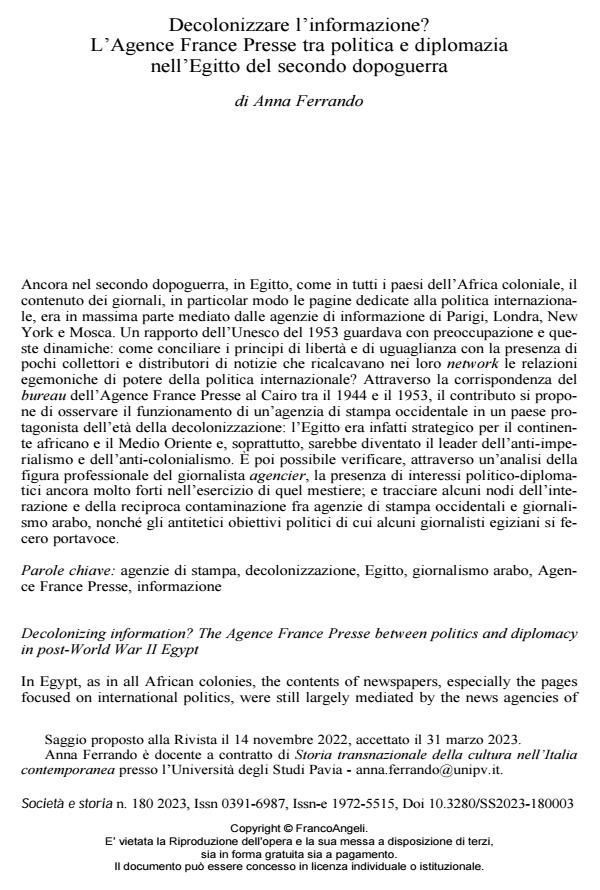Decolonizing information? The Agence France Presse between politics and diplomacy in post-World War II Egypt
Journal title SOCIETÀ E STORIA
Author/s Anna Ferrando
Publishing Year 2023 Issue 2023/180
Language Italian Pages 38 P. 248-285 File size 225 KB
DOI 10.3280/SS2023-180003
DOI is like a bar code for intellectual property: to have more infomation
click here
Below, you can see the article first page
If you want to buy this article in PDF format, you can do it, following the instructions to buy download credits

FrancoAngeli is member of Publishers International Linking Association, Inc (PILA), a not-for-profit association which run the CrossRef service enabling links to and from online scholarly content.
In Egypt, as in all African colonies, the contents of newspapers, especially the pages focused on international politics, were still largely mediated by the news agencies of Paris, London, New York and Moscow even after World War II. A 1953 Unesco report looked at these dynamics with concern: how could the principles of freedom and equality be reconciled with the influence of a few collectors and distributors of news strictly linked to the hegemonic relations of power in international politics? Through the correspondence of the Agence France Presse bureau in Cairo between 1944 and 1953, this article aims to observe the functioning of a Western international press agency in a country that was a protagonist of the age of decolonization: Egypt was indeed strategic for the African continent and the Middle East and, above all, it was a future leader of anti-imperialism and anti-colonialism. It is then possible to assess, through an analysis of the professional figure of the journalist working in press agencies, the impact of political-diplomatic interests that were still very strong in the exercise of that profession; and to highlight some problems about the interaction and mutual contamination between Western press agencies and Arab journalism, as well as the antithetical political objectives carried on by Egyptian journalists.
Keywords: press agencies, decolonization, Egypt, Arab journalism, Agence France Presse, information.
Anna Ferrando, Decolonizzare l’informazione? L’Agence France Presse tra politica e diplomazia nell’Egitto del secondo dopoguerra in "SOCIETÀ E STORIA " 180/2023, pp 248-285, DOI: 10.3280/SS2023-180003